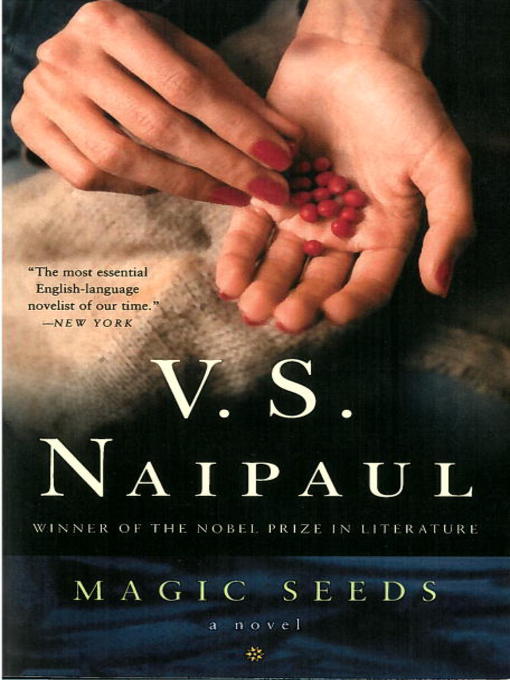
Magic Seeds
کتاب های مرتبط
- اطلاعات
- نقد و بررسی
- دیدگاه کاربران
نقد و بررسی

Starred review from October 18, 2004
At the end of Half a Life
, Naipaul's previous novel, Willie, a young Indian in late 1950s London, travels to Africa. At the beginning of his new novel, Willie is in Berlin with his bossy sister, Sarojini. It is 18 years later. Revolution has uprooted Willie's African existence. Sarojini hooks him up with a guerrilla group in India, and Willie, always ready to be molded to some cause, returns to India. The guerrillas, Willie soon learns, are "absolute maniacs." But caught up, as ever, in the energy of others, Willie stays with them for seven years. He then surrenders and is tossed into the relative comfort of jail. When an old London friend (a lawyer named Roger) gets Willie's book of short stories republished, Willie's imprisonment becomes an embarrassment to the authorities. He is now seen as a forerunner of "postcolonial writing." He returns to London, where he alternates between making love to Perdita, Roger's wife, and looking for a job. One opens up on the staff of an architecture magazine funded by a rich banker (who is also cuckolding Roger). Willie's continual betweenness—a state that makes him, to the guerrillas, a man "who looks at home everywhere"—is the core theme of this novel, and the story is merely the shadow projected by that theme. Sometimes, especially toward the end of the book, as Willie's story becomes more suburban, there is a penumbral sketchiness to the incidents. At one point, Willie, remarking on the rich London set into which he has been flung, thinks: "These people here don't understand nullity." Naipaul does—he is a modern master of the multiple ironies of resentment, the claustrophobia of the margins. In a world in which terrorism continually haunts the headlines, Naipaul's work is indispensable. Agent, Gillon Aitken.

























دیدگاه کاربران